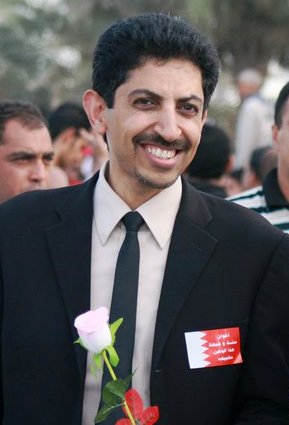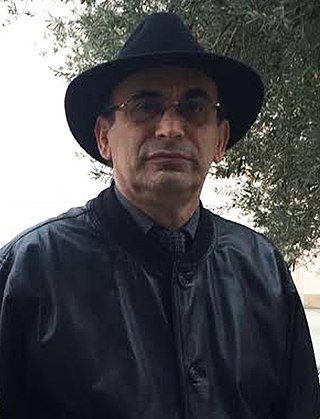Related Research Articles

Human rights in Uzbekistan have been described as "abysmal" by Human Rights Watch, and the country has received heavy criticism from the UK and the US for alleged arbitrary arrests, religious persecution and torture employed by the government on a regional and national level. Amnesty International stated that freedom of expression, association, and peaceful assembly continue to be restricted, and that relations between gay men are illegal.

Turkmenistan's human rights record has been heavily criticized by various countries and scholars worldwide. Standards in education and health declined markedly during the rule of President Saparmurat Niyazov.

Human rights in Kyrgyzstan improved after the ouster of President Askar Akayev in the 2005 Tulip Revolution and the installment of a more democratic government under Roza Otunbayeva. While the country is performing well compared to other states in Central Asia, many human rights violations still take place. Especially LGBT rights have been getting worse in recent years, freedom of press on the contrary has been improving.

The Sahrawi Association of Victims of Grave Violations of Human Rights Committed by the Moroccan State, or ASVDH, is a Sahrawi human rights organization in the Moroccan-occupied areas of Western Sahara.

Human rights in Egypt are guaranteed by the Constitution of the Arab Republic of Egypt under the various articles of Chapter 3. The country is also a party to numerous international human rights treaties, including the International Covenant on Civil and Political Rights and the International Covenant on Economic, Social and Cultural Rights. However, the state of human rights in the country has been criticized both in the past and the present, especially by foreign human rights organizations such as Amnesty International and Human Rights Watch. As of 2022, Human Rights Watch has declared that Egypt's human rights crises under the government of President Abdel Fattah al-Sisi, is "one of its worst ... in many decades", and that "tens of thousands of government critics, including journalists, peaceful activists, and human rights defenders, remain imprisoned on abusive 'terrorism' charges, many in lengthy pretrial detention." International human rights organizations, such as the aforementioned HRW and Amnesty International, report that as of January 2020, there are some 60,000 political prisoners in Egypt. Other complaints made are of authorities harassing and detaining "relatives of dissidents abroad" and use of "vague 'morality' charges to prosecute LGBT people, female social media influencers, and survivors of sexual violence". The Egyptian government has frequently rejected such criticism, denying that any of the prisoners it holds are political prisoners.

Abdulhadi Abdulla Hubail al-Khawaja is a Bahraini political activist. On 22 June 2011, al-Khawaja and eight others were sentenced to life imprisonment following the suppression of pro-democracy protests against the Bahraini government. al-Khawaja has previously gone on a series of hunger strikes while serving his life sentence, in protest of the political conditions in Bahrain.

Emadeddin Baghi is an Iranian Journalist, human rights activist, prisoners' rights advocate, investigative journalist, theologian and writer. He is the founder and head of the Committee for the Defense of Prisoners' Rights and the Society of Right to Life Guardians in Iran, and the author of twenty books, six of which have been banned in Iran. Baghi was imprisoned in connection with his writings on the Chain Murders of Iran, which occurred in Autumn 1998, and imprisoned again in late 2007 for another year on charges of "acting against national security." According to his family and lawyers, Baghi has been summoned to court 23 times since his release in 2003. He has also had his passport confiscated, his newspaper closed, and suspended prison sentences passed against his wife and daughter. Baghi was rearrested on 28 December 2009 on charges related to an interview with Grand Ayatollah Hussein-Ali Montazeri. Baghi was released and then again rearrested on 5 December 2010.

Azimzhan Askarov was an ethnic Uzbek Kyrgyzstani political activist who founded the group Vozduh in 2002 to investigate police brutality. During the 2010 South Kyrgyzstan ethnic clashes, which primarily targeted people of the Uzbek nationality, Askarov worked to document the violence.
Azam Farmonov is an Uzbekistani rural development activist who spent 11 years in prison following conviction for extortion in 2006. Amnesty International considered him a prisoner of conscience and in 2011 named him a "priority case".
The United Arab Emirates Five are five activists who were arrested in April 2011 on charges of breaking United Arab Emirates law of defamation by insulting heads of state, namely UAE president Khalifa bin Zayed Al Nahyan, vice president Mohammed bin Rashid Al Maktoum, and Abu Dhabi crown prince Mohammed bin Zayed Al Nahyan through running an anti-government website that express anti-government views.
Ahmed Abdul Khaleq is a blogger and activist of the stateless Bedoun minority who formerly resided in Ajman in the United Arab Emirates. From April to November 2011, he was imprisoned as one of the UAE Five on charges of insulting United Arab Emirates President Khalifa bin Zayed Al Nahyan, Vice President Mohammed bin Rashid Al Maktoum, and Crown Prince of Abu Dhabi Mohammed bin Zayed Al Nahyan. Amnesty International designated him a prisoner of conscience, and he was released following a presidential pardon. In May 2012, he was rearrested and given a choice between indefinite detention or exile. On 16 July, he left the country for Thailand.

Mahdi Isa Mahdi Abu Deeb is the founder and leader of Bahrain Teachers' Association (BTA), and Assistant Secretary-General of Arab Teachers' Union. Due to his role in the Bahraini uprising, he was arrested, allegedly tortured, and sentenced to 10 years in prison. His sentence was later reduced to five years by an appeals court. Amnesty International designated him a prisoner of conscience.

Jalila Mohammed Ridha al-Salman (1965) is a Bahraini teacher and vice president of the Bahrain Teachers' Association (BTA). Due to her role in the Bahraini uprising, she was arrested for 149 days, allegedly tortured, and sentenced to 3 years in prison. On 21 September 2012, her sentence was reduced to six months' imprisonment by an appeals court.

The Bahrain health worker trials were a series of legal cases in which forty-eight doctors, nurses, and dentists faced charges for their actions during the Bahraini uprising of 2011. In September 2011, twenty of the health workers were convicted by a military court of felonies including "stockpiling weapons" and "plotting to overthrow the government". The remaining twenty-eight were charged with misdemeanors and tried separately. The following month, the felony sentences were overturned, and it was announced that the defendants would be retried by a civilian court. Retrials began in March 2012, but were postponed until June 14. Convictions against nine of the defendants were quashed and reduced against another nine. The Court of Cassation upheld the sentences against the remaining nine on 1 October.
Vi Đức Hồi is an ethnically Tay Vietnamese democracy activist and former Communist Party official of Lạng Sơn Province. He was imprisoned in 2011 for advocating a multi-party system.

The Bahrain Thirteen are thirteen Bahraini opposition leaders, rights activists, bloggers and Shia clerics arrested between 17 March and 9 April 2011 in connection with their role in the national uprising. In June 2011, they were tried by a special military court, the National Safety Court, and convicted of "setting up terror groups to topple the royal regime and change the constitution"; they received sentences ranging from two years to life in prison. A military appeal court upheld the sentences in September. The trial was "one of the most prominent" before the National Safety Court. A retrial in a civilian court was held in April 2012 but the accused were not released from prison. The sentences were upheld again on 4 September 2012. On 7 January 2013, the defendants lost their last chance of appeal when the Court of Cassation, Bahrain's top court upheld the sentences.
Dissidents have been detained as political prisoners in Saudi Arabia during the 1990s, 2000s and 2010s. Protests and sit-ins calling for political prisoners to be released took place during the 2011–2012 Saudi Arabian protests in many cities throughout Saudi Arabia, with security forces firing live bullets in the air on 19 August 2012 at a protest at al-Ha'ir Prison. As of 2012, recent estimates of the number of political prisoners in Mabahith prisons range from a denial of any political prisoners at all by the Ministry of Interior, to 30,000 by the UK-based Islamic Human Rights Commission and the BBC.
Salijon Abdurahmanov is an Uzbek journalist who contributed to Radio Free Europe, Voice of America and uznews.net. In October 2008, he was given a ten-year prison sentence for marijuana and opium possession. He asserted his innocence of the charges, stating that the drugs were planted by police officers. Several international human rights NGOs called for his release, including Amnesty International, which designated him a prisoner of conscience. In 2014 he was awarded the Johann Philipp Palm prize for freedom of expression and the press. He was freed from detention in October 2017.

Arif Yunusov, also known as Arif Yunus, is an Azerbaijani author, historian, and human rights activist. He is the head of the Department of Conflict and Migration of the Institute of Peace and Democracy. Arif Yunusov along with his wife Leyla are supporters of a peaceful resolution to the Nagorno-Karabakh conflict between Armenia and Azerbaijan. On 28 April 2014, Arif Yunusov and his wife Leyla were jailed on charges of extortion and treason for allegedly spying for Armenia. After being detained, Arif Yunusov was sentenced to 7 years in jail; his wife, Leyla Yunus, was sentenced to 8.5 years in jail. Their sentences were suspended 15 months later and the couple was allowed to leave for the Netherlands.
References
- 1 2 3 4 5 6 7 "ALISHER KARAMATOV AND AZAM FARMONOV, PRISONERS OF CONSCIENCE". Amnesty International. Archived from the original on 2011-04-29. Retrieved 18 April 2011.
- 1 2 3 "Imprisoned Human Rights Defenders in Uzbekistan". Human Rights Watch. 5 February 2010. Archived from the original on 27 March 2011. Retrieved 18 April 2011.
- 1 2 "Uzbekistan: Broader Criminal Charges Used to Quash Dissent". Human Rights Watch. 20 June 2006. Retrieved 18 April 2011.
- ↑ "Uzbekistan - Ongoing detention and deterioration in health of human rights defender Alisher Karamatov". Front Line. 10 December 2008. Archived from the original on 4 March 2011. Retrieved 18 April 2011.